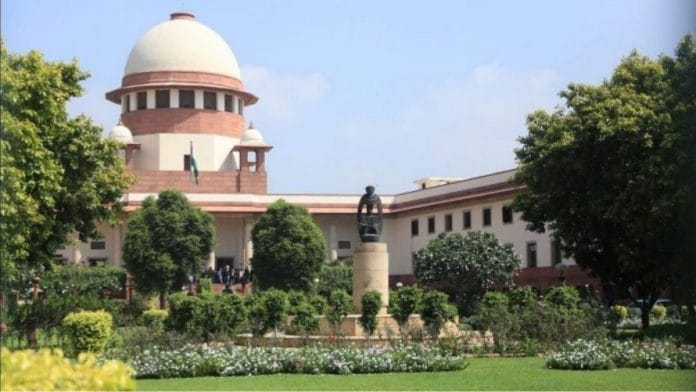New Delhi: The petitioners who have challenged the 27 per cent reservation for Other Backward Classes (OBCs) and 10 per cent quota for Economically Weaker Sections (EWS) introduced by the central government under the All India Quota scheme for medical courses, have questioned the reasoning behind fixing Rs 8 lakh annual income as the criterion to determine EWS category.
Senior advocate Arvind P. Datar, appearing for one of the petitioners before the Supreme Court Wednesday, raised doubts over the conclusions reached by a government-appointed panel of three experts, which has suggested to stick to the existing criterion of Rs 8 lakh annual income limit for determination of EWS reservation in connection with the ongoing admissions to the NEET-PG courses.
In his brief submissions before a bench led by Justice D.Y. Chandrachud, Datar said though the expert committee’s report justified the ceiling limit of Rs 8 lakh, “all will be affected by this quota and it was done just without any study”.
The hearing remained inconclusive Wednesday. In view of the delay in NEET-PG counselling and protests by resident doctors, the bench fixed Thursday as the day to conclude the hearing and then pass orders on the clutch of petitions.
Also read: ‘Can cause grave prejudice’ — govt seeks recall of SC order de-reserving OBC seats in MP
The case at hand
NEET-PG counselling is held every year in March. However, in 2021, it got delayed due to Covid-19, as the entrance examination itself took place in September.
The counselling got further delayed after the central government on 25 October assured the SC that it will not go ahead with the process till the court decides the petitions challenging the quota in medical admissions.
During one of the hearings in October, it emerged that the Centre had fixed Rs 8 lakh annual income as the way to determine the EWS category. The court had questioned this criterion and had sought to know it was fixed. In response to this query, the government set up a three-member panel on 30 November, headed by a former finance secretary, to reassess.
The panel’s report was submitted to the top court on 1 January, suggesting the existing rules may be continued for ongoing admissions, while the revised criteria suggested by the committee may be adopted from the next admission cycle.
Referring to the contents of this report, Datar told the court that the Constitution amendment providing for EWS reservation was notified on 15 January 2019 and within three days, the office memorandum specifying the criteria was released.
Unlike the commissions for OBC reservations, there was no study undertaken for EWS reservations, he argued, adding that even the present report justified the Rs 8 lakh criterion, albeit without any survey or study.
Datar faulted the basis for fixing the limit and called it “completely arbitrary”.
“If someone has money to invest in FDs (fixed deposits), provident fund and makes capital gains in share markets, can they be called EWS?” the senior counsel asked.
The court was informed by the central government counsel, Additional Solicitor General K.M. Natraj, that the EWS quota had been implemented in central educational institutions.
Earlier, senior advocate Shyam Divan advanced his submissions opposing OBC reservation, saying the quota cannot be implemented for this year. According to Divan, All India Quota was implemented upon directions of the Supreme Court, therefore, any variation can only be done after its orders and not by an executive decision.
Further, he contended, the rules of the game had been changed belatedly, which cannot be done.
(Edited by Neha Mahajan)
Also read: EWS quota is a bad law, it needs to go






